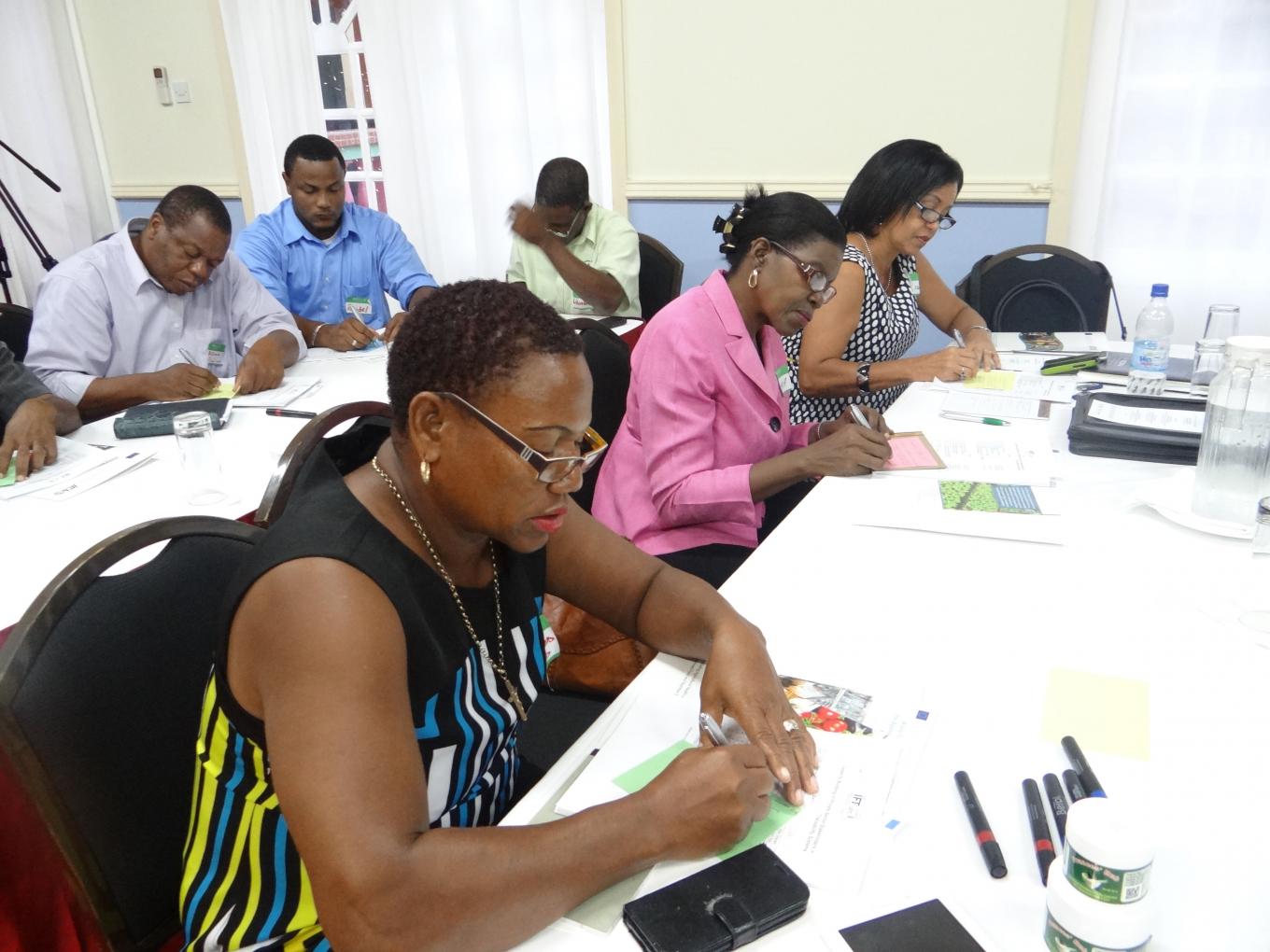Introduction of basic principles and practices for implementing a traceability system on farms and agro-processing sites.

CASTRIES, St. Lucia. 24 participants from the public and private sectors received training in food traceability systems for improved product recognition and market acceptance.
The training, which was conducted over two days, was facilitated by Robert Bob Gravani and Jaheon Koo from the Institute of Food Technologists (IFT) Global Food Traceability Center, USA.
Participants in the training included staff of the Ministries of Agriculture and Health, small producer’s groups, and a number of small and large processors. Support for the training was provided under 10th EDF SPS Project Support to the Caribbean Forum of ACP States in the Implementation of Commitments Undertaken Under the Economic Partnership Agreement (EPA): Sanitary and Phytosanitary Measures (SPS) and implemented by the Inter-American Institute for Cooperation on Agriculture (IICA).
The opening ceremony was chaired by the national specialist of the IICA Delegation in St. Lucia, Brent Theophile, with remarks from John Calixte, Acting Permanent Secretary, Ministry of Agriculture, Fisheries, Physical Planning, Natural Resources and Cooperatives; and Aviva St Clair, Deputy National Authorizing Officer, Department of Economic Development, Transport and Civil Aviation;.
The training covered a range of topics including:
- Traceability Regulations
- Supply Chain Management
- Competitive Advantage
- Enhancing Traceability
- Developing of Action Plans

One highlight of the training was the provision and preparation of detailed guides and templates for mapping out critical tracking events (CTEs), key data elements (KDEs), and the traceability system action plan to achieve the desired business outcome.
Participants in their feedback noted that the sessions were very interactive and informative. The training also provided an opportunity for networking among agro-processors, revealing that some small business owners already had simple traceability systems in operation. This awareness provided insight into how others could realize the same for their own businesses. In addition, dialogue between the public and private sector representatives allowed for consensus-building on initiatives warranting collective support.
“It is my expectation that through the insight into the subject matter provided by the capable facilitators that participants will be convinced that this is a worthwhile investment in product differentiation, brand/product recognition and expanding market participation – these are all elements of competitive advantage with the kind of return on investment that far outweigh the costs of implementation,” stated Theophile.
More information:











